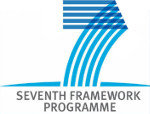Longitudinal associations between psychosomatic and emotional status and selected food portion sizes in European children and adolescents: IDEFICS/I.Family study
Flieh, Sondos M. ; Hebestreit, Antje ; Pohlabeln, Hermann ; Miguel-Berges, María L. ; González-Gil, Esther M. ; Russo, Paola ; Molnár, Dénes ; Wijnant, Kathleen ; Lissner, Lauren ; Do, Stefanie ; Solea, Tonia ; Veidebaum, Toomas ; Moreno, Luis A. (Universidad de Zaragoza)
Resumen: This study aims to investigate the influence of psychosomatic and emotional status on food portion sizes (PSs) consumption from high energy-dense food groups in European children and adolescents. We hypothesized that psychosomatic and emotional status would have a significant association with the PS selection of energy-dense food. The study included 7355 children aged between 2 and 9.9 years at baseline (T0) (48.8% females); 3869 after 2 years (T1) (48.2% females), and 2971 (51.8% females) after 6 years of follow-up (T3). Psychosomatic and emotional status were measured using emotional well-being during the last week score (KINDL) and Strengths and Difficulties Questionnaire. PS was calculated from daily food intake recorded in 24-hour dietary recalls. The associations between emotional status indicators and PS from selected energy-dense food groups were assessed by multilevel linear regression models. In the cross-sectional analysis, we observed that higher KINDL scores were linked to lower PS consumption from sweet bakery products and savory snacks in both genders. Moreover, we found that adolescent females with high emotional and peer problem scores tended to consume larger PS of carbohydrate-rich and sugar-fatty food items (P < .017). Longitudinally, higher peer problem scores were associated with increased PS from bread and rolls, margarine and lipids, and dairy products in all genders and age groups (P< .017). In adolescents, psychosomatic and emotional status could be a trigger for consuming large PS from carbohydrate-rich and sugar-fatty energy-dense foods. Thus, nutritional interventions should consider emotional status to decrease unhealthy dietary habits in children and adolescents.
Idioma: Inglés
DOI: 10.1016/j.nutres.2024.05.004
Año: 2024
Publicado en: NUTRITION RESEARCH 127 (2024), 84-96
ISSN: 0271-5317
Financiación: info:eu-repo/grantAgreement/EUR/FP6/FOOD-016181
Financiación: info:eu-repo/grantAgreement/EC/FP7/266044/EU/Determinants of eating behaviour in European children, adolescents and their parents/I.FAMILY
Tipo y forma: Artículo (Versión definitiva)
Área (Departamento): Área Enfermería (Dpto. Fisiatría y Enfermería)
 Debe reconocer adecuadamente la autoría, proporcionar un enlace a la licencia e indicar si se han realizado cambios. Puede hacerlo de cualquier manera razonable, pero no de una manera que sugiera que tiene el apoyo del licenciador o lo recibe por el uso que hace. No puede utilizar el material para una finalidad comercial. Si remezcla, transforma o crea a partir del material, no puede difundir el material modificado.
Debe reconocer adecuadamente la autoría, proporcionar un enlace a la licencia e indicar si se han realizado cambios. Puede hacerlo de cualquier manera razonable, pero no de una manera que sugiera que tiene el apoyo del licenciador o lo recibe por el uso que hace. No puede utilizar el material para una finalidad comercial. Si remezcla, transforma o crea a partir del material, no puede difundir el material modificado.
Exportado de SIDERAL (2024-07-11-08:38:41)
Visitas y descargas
Idioma: Inglés
DOI: 10.1016/j.nutres.2024.05.004
Año: 2024
Publicado en: NUTRITION RESEARCH 127 (2024), 84-96
ISSN: 0271-5317
Financiación: info:eu-repo/grantAgreement/EUR/FP6/FOOD-016181
Financiación: info:eu-repo/grantAgreement/EC/FP7/266044/EU/Determinants of eating behaviour in European children, adolescents and their parents/I.FAMILY
Tipo y forma: Artículo (Versión definitiva)
Área (Departamento): Área Enfermería (Dpto. Fisiatría y Enfermería)
Exportado de SIDERAL (2024-07-11-08:38:41)
Enlace permanente:
Visitas y descargas
Este artículo se encuentra en las siguientes colecciones:
Artículos > Artículos por área > Enfermería
Registro creado el 2024-07-11, última modificación el 2024-07-11

